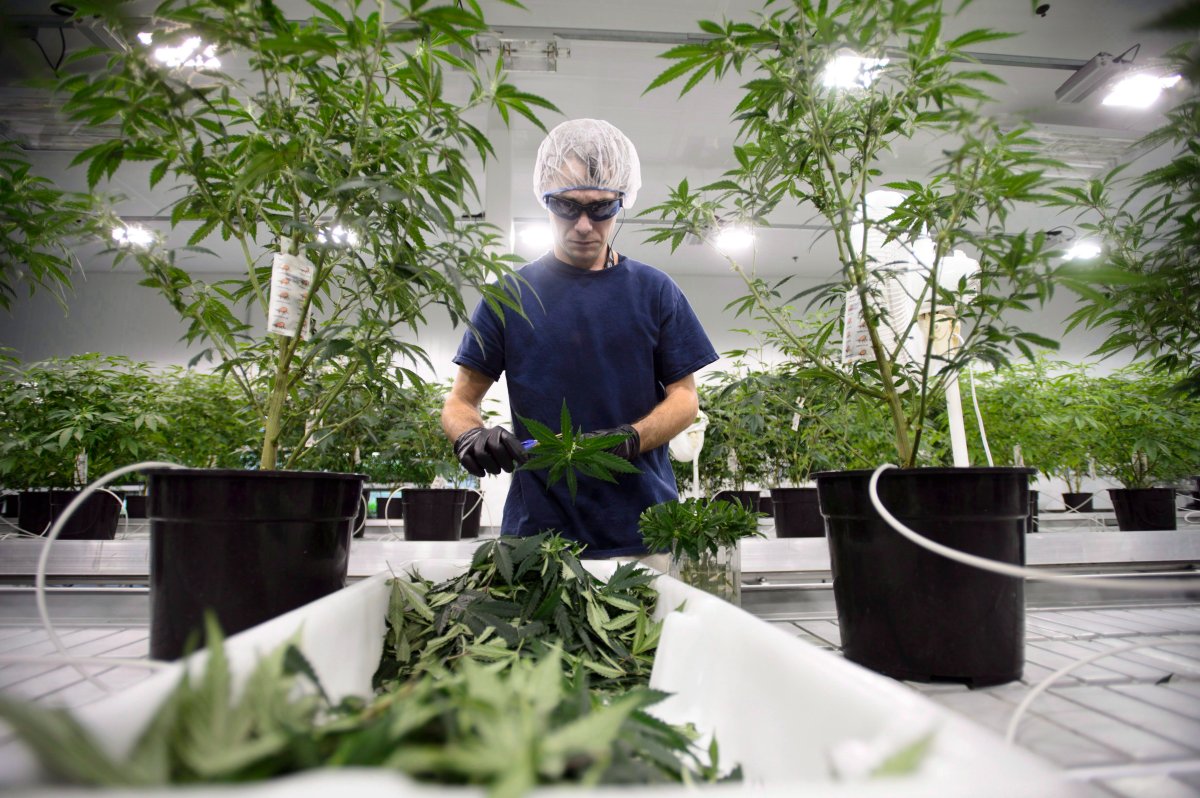TORONTO – Canopy Growth‘s chief executive talked more aggressively Thursday about the potential for U.S. expansion when and if marijuana becomes federally legal south of the border _ one day after the licensed medical marijuana producer got a $5-billion infusion of cash – and believes that even under a Trump government that day will dawn sooner than anticipated.

In explaining his bullish outlook, Bruce Linton pointed to a U.S. Senate bill introduced in June that would amend the Controlled Substances Act to exempt marijuana activity that is legal at the state level, as well as to recent comments backing states’ rights on pot from the Koch brothers, prominent Republican donors and businessmen.
“I will not go in until its federally legal, at all. But what I’m observing from a distance, are indications that it may in fact become federally legal sooner than later…. State rights have typically been associated with the Republican party,” he said on the sidelines of Marijuana Business Daily’s industry conference in Toronto on Thursday.
His comments come after the Smiths Falls, Ont.-based licensed producer announced an additional $5-billion investment from Constellation Brands, which increases the U.S.-based alcohol brand giant’s stake in Canopy to 38 per cent.
It’s the largest strategic investment in the cannabis space to date which comes as Canada prepares to legalize the drug for recreational use on Oct. 17.
Canopy has said the $5 billion in capital will be used to fuel its accelerated global growth as it gears up to fend off competition from big pharma, big tobacco, consumer packaged goods companies and alcohol firms making forays into the pot space.

Get breaking National news
Linton’s optimistic outlook south of the border is a departure from his prior cautious stance when discussing the U.S. – where the drug is legalized in several states for medical and recreational use but remains an illegal substance at the federal level.
The murky legal landscape prompted Canada’s biggest exchange operator TMX Group in October to warn pot companies with business activities that violate U.S. federal law that they could face delisting.
Earlier this year, the U.S. president’s top law enforcement official rescinded an Obama-era memo that suggested that the federal government would not intervene in states where the cannabis was legal. But in June, Donald Trump signalled that he would “probably” support the bill amending the Controlled Substances Act, which has been referred to a Senate committee and is known as the STATES act.
The STATES act is what may have prompted both companies to deepen their partnership this rapidly, said Martin Landry, an analyst with GMP Securities.
“We expect this could effectively make marijuana federally legal in states where recreational consumption is legal at the state level,” he said in a research note.
At maturity, the U.S. market could generate US$50 billion in annual sales, Landry added.
Canopy has lined up an option to acquire a “humongous” greenhouse in California as part of a broader strategy to enter the U.S. market quickly, Linton said during a question-and-answer session onstage at the industry conference.
“Having optionality on assets to become part of the integrated growth of what could be a huge economy is a good way to go. And you’re not breaking laws, because they still grow tomatoes,” he said during the session.
When asked about other potential moves to position Canopy for legalization south of the border, Linton said the company had “many, many others” in the works, but would not disclose details.
Linton added that the company will focus on key consumer markets such as Florida, Texas and California – and not necessarily the states where cannabis is currently legal.
“Where does most of the beer get sold, where does most of the wine get sold?” he said.
The Constellation deal comes as other alcohol companies have also made inroads into the pot industry. Earlier this month, Molson Coors Canada entered into a joint venture with the Hydropothecary Corp. to develop non-alcoholic cannabis-infused products. As well, Heineken-owned Lagunitas Brewing Co. recently introduced a cannabis-infused hoppy sparkling water.
As part of the investment, Constellation will also receive 139.7 million new warrants, which are exercisable over the next three years. If Constellation exercises all of its existing and new warrants, its ownership in Canopy would exceed 50 per cent.
Constellation’s hefty investment in Canopy is also the latest sign that Wall Street, as well as Bay Street, is warming up to the cannabis industry. For example, Goldman Sachs advised Constellation Brands on the deal and Bank of America Merrill Lynch provided financing for the transaction. Linton also said Thursday that Canopy’s recent $600-million convertible debenture on the New York Stock Exchange attracted “huge international investors.”
Canadian banks had largely steered clear of the country’s cannabis sector until January, when Bank of Montreal co-led a $175-million bought deal financing for Canopy.







Comments